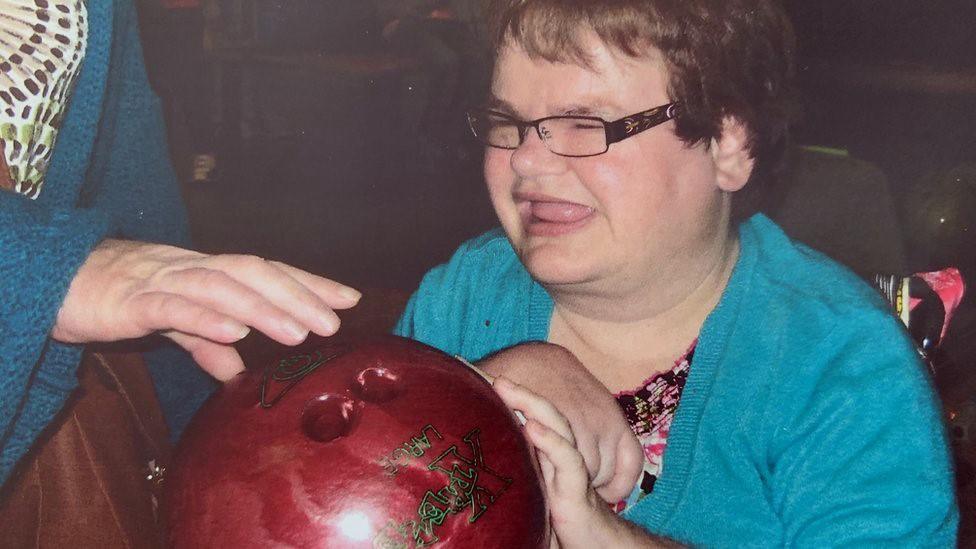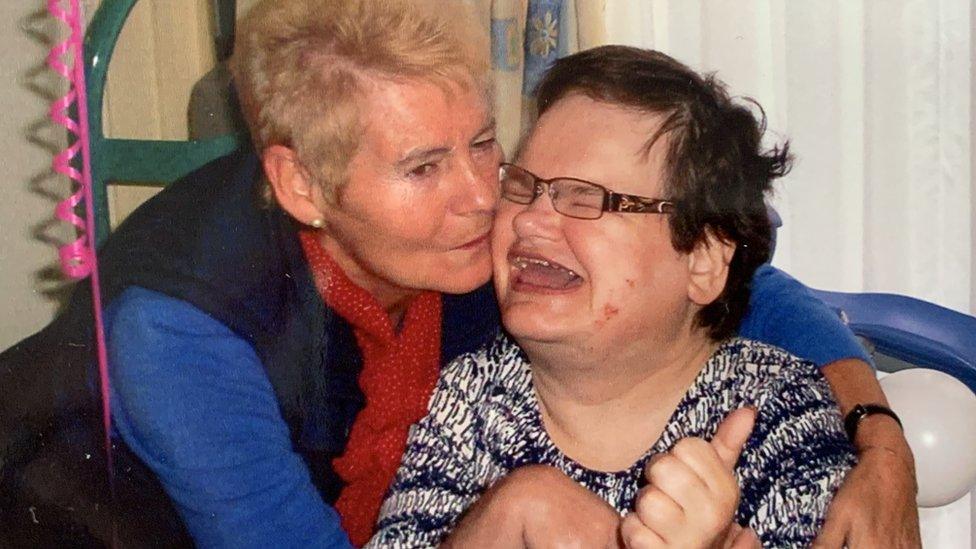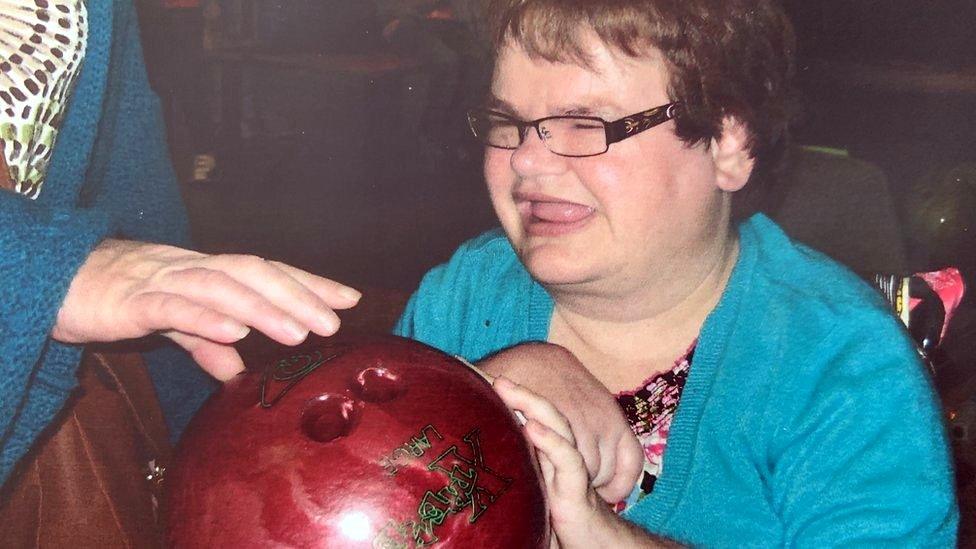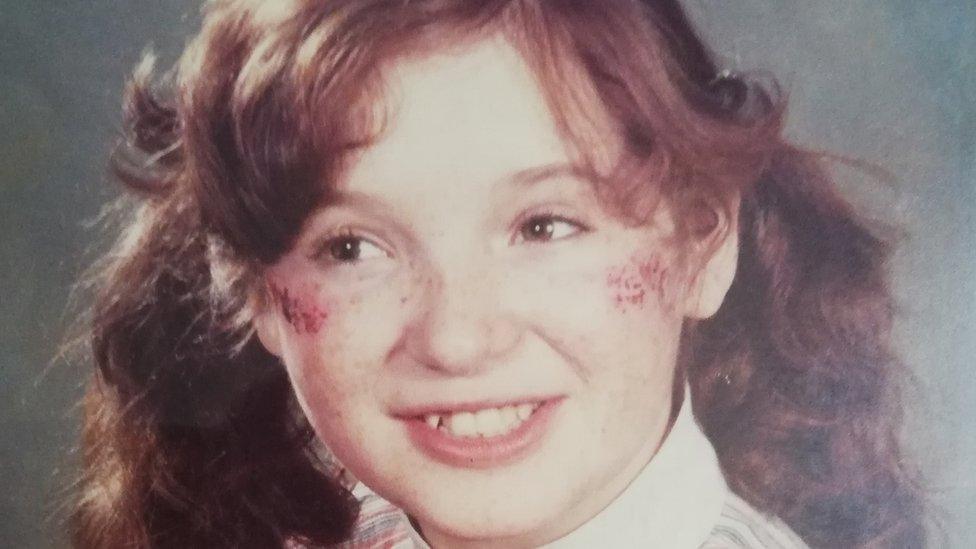Rachel Johnston: Nurse 'failed on basic care' of teeth removal woman
- Published

Rachel Johnston "brightened up the room" with her sunny personality, the manager of her care home said
A care home nurse failed to do basic checks on a disabled woman who had returned from hospital having had all her teeth removed, an inquest heard.
Sheeba George also told a 111 operator Rachel Johnston was breathing normally, when earlier she had been described as "chesty and gurgling".
Ms Johnston, of Worcestershire, was taken to hospital two days after the procedure and died two weeks later.
Ms George admitted to coroner David Reid she did not perform "basic care".
Ms Johnston, 49, had all her teeth removed at Kidderminster Hospital on 26 October 2018 due to severe decay that was causing her pain.
She was discharged four hours later but fell asleep on the journey home to Pirton Grange Care Home, near Worcester, and never regained consciousness.
Ms George, who was on a night shift at the care home on the day Ms Johnston returned, told the inquest she was unaware how many teeth Ms Johnston had had removed.
She also did not check Ms Johnston's oxygen saturations levels when she was bleeding from her mouth, which should have detected her worsening condition.
"This was basic medical care - to do these checks with a patient who has come back from hospital and had an anaesthetic," Mr Reid said.
"Yes, I admit that," Ms George replied.

Diana Johnston, Rachel Johnston's mother, said she thought she was leaving her daughter "in safe hands" at the care home
The next day, Ms Johnston was seen to be "chesty and gurgling" and care home staff called 111. A nurse practitioner called back 90 minutes later but Ms George explained she was breathing normally.
Asked if Ms Johnston was having problems with her breathing, Ms George told Mr Reid: "Not at that moment, no."
Jane Colbourn, care manager at Pirton Grange, said Ms Johnston, who suffered brain damage after contracting meningitis as a child, had a "personality that brightened up the room" and was "a joy to be around". She also enjoyed "singing at all times of the day or night", she said.
Ms Colbourn said she found out two ambulances and a helicopter had been called out to the home to take Ms Johnston back to hospital two days after she had been discharged.
"I was quite shocked because I didn't know how she had returned from hospital anyway. I was shocked I didn't know about her deterioration. I hadn't been told. I still can't understand that to be honest."
Ms Colbourn said there had been no policy in place at the home at the time for dealing with patients returning from hospital.
"I look back at the last few years and wonder why we didn't," she said.
Ms Johnston died of a hypoxic brain injury 10 days after her family agreed to turn her life support machine off.
The hearing continues.

Follow BBC West Midlands on Facebook, external, Twitter, external and Instagram, external. Send your story ideas to: newsonline.westmidlands@bbc.co.uk , external
- Published8 February 2021

- Published12 August 2019

- Published6 January 2019

- Published14 December 2018
